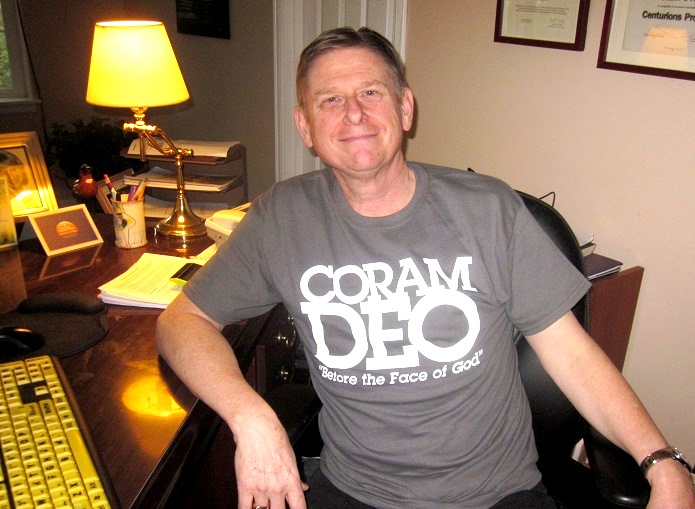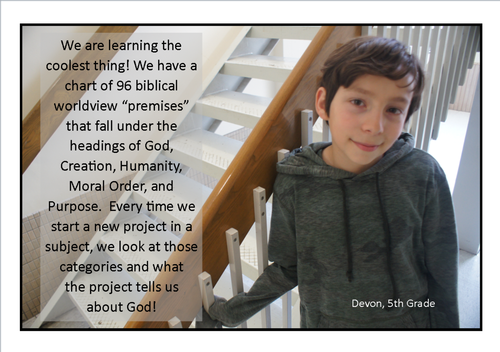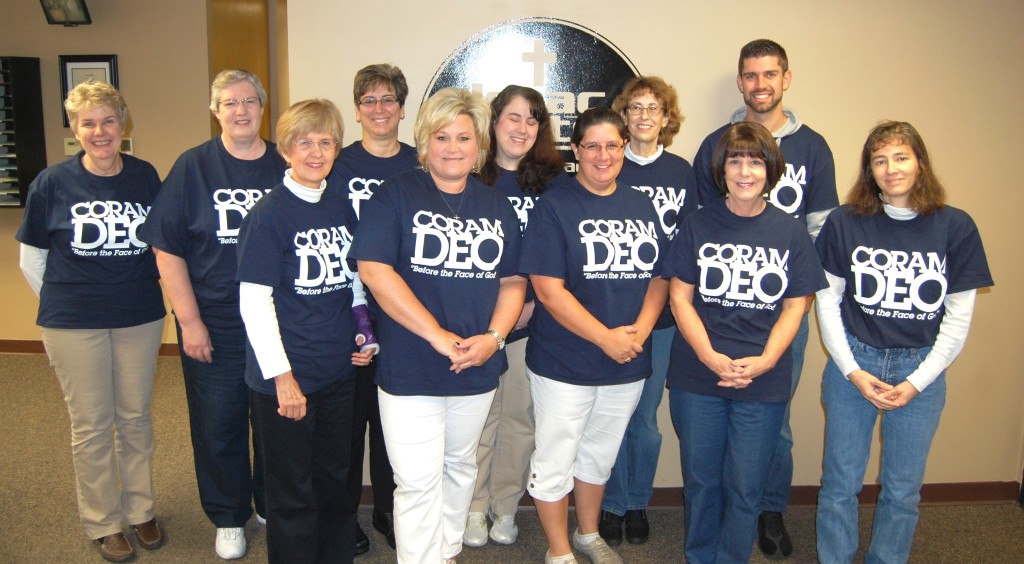Mostly, the DNA school of thought has rooted in Africa, Latin America and Asia. All told, the DNA is active in about 60 countries. Here’s a story about one exception, something special happening in America’s heartland.

Our friend Dr. Christian Overman is founding director of Worldview Matters based in Seattle, Washington. Christian speaks, writes and coaches in the area of biblical worldview and assimilation. Currently he is testing a pilot program designed for Christian educators: Increase Meaning: A Wholistic Approach to Christian Education. Eight Christian schools in Nigeria, Peru, Guatemala, and the US are part of this pilot project. Completion of the nine-month online course requires reading two texts, including Darrow Miller’s book LifeWork: A Biblical Theology for What You Do Every Day. (Go here for more information about this course.)
One of the schools in the pilot project is Isaac Newton Christian Academy (INCA). Located in Cedar Rapids, Iowa, INCA educates 200 children pre-kindergarten through eighth grade from 40 church congregations in the region. Christian is currently teaching his class to 12 INCA faculty members, after having taught it last year to Headmaster Dean Ridder, along with two of his faculty members.

After a DNA presentation, we often hear responses like, This material has made a paradigm shift for me. The INCA experience has been no exception. The school was already committed to imparting a biblical worldview to its students, and their exposure to Christian’s course and Darrow’s LifeWork material has given further impetus and direction to this commitment, as the following testimonies from INCA faculty and staff indicate:
The title of this book [LifeWork] coins a new term meant to open its readers up to a paradigm shift in our attitudes surrounding work. I would say that it has accomplished this task and started me on a course change in my life. I don’t view my own activities the same way. I don’t talk to my kids about chores and homework the same way. I don’t interact with workers at various businesses I visit the same way.
I worked hard to demonstrate to my students that mastering math facts and working long division problems were ways to worship. Once they realized that their attitude was the reason they could not see these tasks as a way to worship God, things began to change. Twenty of my 21 students mastered 100 multiplication facts in three minutes or less.
God has called His people in many areas of employment. If all of His children were kingdomizers, imagine what our world would be like. It gives me chills to think about it!
I had thought I needed to find times to escape from my activities to be with Jesus but now see that I am to recognize the presence of God in every moment and see every activity as an opportunity for His Kingdom. This removes a lot of the sense of mundaneness that life’s responsibilities evoke. It lends an inspiring importance to even the most repetitive tasks. If it needs to be done, it is worth doing well, and it is not a waste of my time or talents.

As builders are currently constructing our new gymnasium, we are working with graphic designers to incorporate these elements into the design of the gymnasium. We expect that the gymnasium will be a physical representation of these ideas. (Floor/Foundation: Jesus Christ, the Word of God; Wall 1: Man and God; Wall 2: Man and self; Wall 3: Man and others; Wall 4: Man and the physical world; Roof/Ceiling: Man and the metaphysical world).Each of us creates a culture in our own spheres of influence and this is where God is able to bring His Kingdom to the world through us if we align our lives with God’s Kingdom principles. If we do not, we may be believers, but the culture we create around us will be humanistic or atheistic. A scary thought! I was so glad to read on page 96 [of LifeWork] that all of culture boils down to questions of truth, justice, and beauty.
I agree with Mr. Miller’s statement that “the cause of Christ can advance more during six days of the week than on Sunday, more in the marketplace than in the walls of the church building.”
Soli Deo Gloria (for the glory of God alone). I have been energized by the way Miller has addressed this concept. As a Christian school, we are to use the educational process to help our students understand the truth, and know the Author of Truth. “The whole of Scripture shows that we glorify God by making the truth about God known to others, not from God’s point of view so that we can say, ‘I’m great!’ or ‘I’m good!’ but so that the whole earth experiences his greatness and goodness, so that his whole creation is restored to his original intentions.” (p. 61) Amen!



